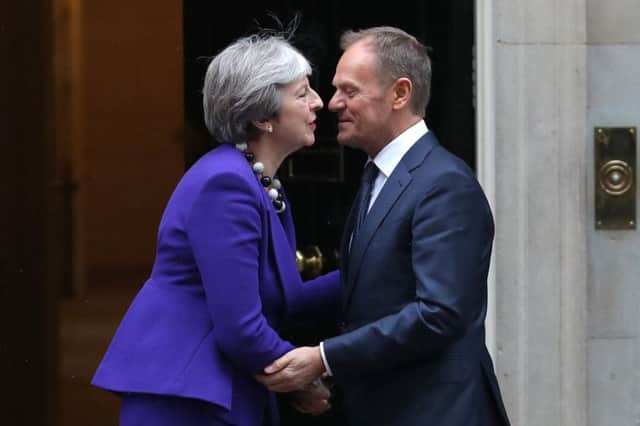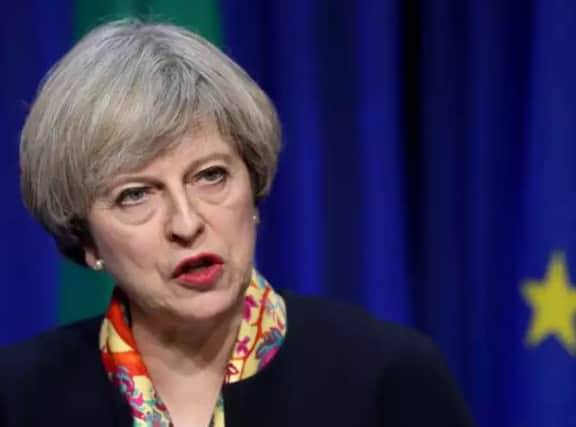Theresa May says Brexit deal 'must involve compromises'


In a keynote speech at the Mansion House in London, she attempted to manage the expectations of hardline Brexiteers, many within her own party, as she laid out her five tests to respect the Brexit referendum result and five foundations to underpin the new relationship with the EU.
She underlined that Britain would be leaving the single market and customs union and warned that the UK’s access to the single market would be “less than it is now” and said the UK would have to pay into some EU agencies.
Advertisement
Hide AdAdvertisement
Hide AdShe said the UK wanted to explore how it could remain part of the European Medicines Agency, the European Chemicals Agency, and the European Aviation Safety Agency after Brexit – an arrangement that would involve paying a membership fee. With the UK leaving the customs union, she said the UK still wanted an agreement with the block to achieve as “frictionless a border as possible” in Ireland to avoid a hard border between North and South. She set out two options – a customs partnership or a “highly streamlined customs arrangement”.


“But, importantly, we would put in place a mechanism so that the UK would also be able to apply its own tariffs and trade policy for goods intended for the UK market,” she said. Under option two there would be “a range of measures to minimise frictions to trade, together with specific provisions for Northern Ireland”.
She dismissed the European Commission’s insistence that it would not allow “cherry-picking” of rights and obligations, insisting that this was a part of any trade negotiation.
She also rejected chief Brexit negotiator Michel Barnier’s argument that her “red lines” on quitting the single market, customs union and European Court of Justice have left only the option of a Canada-style free trade agreement, insisting that Brussels needs to “look beyond the precedents, and find a new balance”.


Mrs May offered reassurance to Brussels that she would not give in to calls from Brexit hardliners to walk away from the table if things did not go her way.
“We will not be buffeted by the demands to talk tough or threaten a walk-out,” she said.
Her speech followed increasingly impatient appeals from EU leaders for more detail about Britain’s aims. Mr Barnier welcomed the speech for offering “clarity” on the UK’s aims and a recognition that there would be “trade-offs”.
But German MEP Manfred Weber – an ally of Chancellor Angela Merkel and leader of the centre-right EPP grouping in the European Parliament – said: “I don’t see how we could reach an agreement on Brexit if the UK government continues to bury its head in the sand like this”.
Advertisement
Hide AdAdvertisement
Hide AdNicola Sturgeon said Mrs May’s speech had set out the benefits of EU membership, making her pursuit of a “hard Brexit all the more bizarre”. The First Minister said Mrs May had to take seriously the Scottish Government’s proposals to maintain Scotland and the UK’s position in the single market and customs union.
Mrs May said that any deal must pass the “five tests” of respecting the 2016 referendum result; delivering an enduring solution; protecting security and prosperity; leaving Britain an “open, outward-looking, tolerant, European democracy”; and strengthening the union of the UK.
She said the agreement should rest on “five foundations”, including binding commitments to ensure fair and open competition and an independent arbitration mechanism to resolve disputes.
